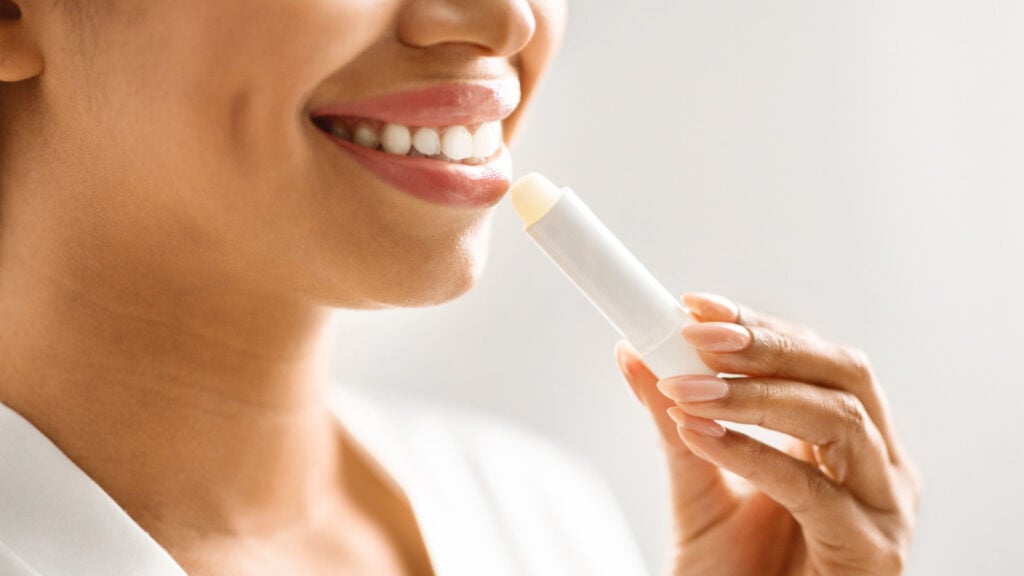Chapped Lips No More: 10 Simple Hacks for Perfectly Smooth Lips
Chapped lips are not just a winter woe; they can be a persistent and uncomfortable problem all year round. Dry, cracked lips can be painful and can make simple actions like smiling or eating a chore. Fortunately, with the right care and attention, you can maintain soft, smooth lips regardless of the weather. Here are ten expert-backed strategies to prevent chapping and keep your lips in optimal condition.
1. Stay Hydrated

Keeping your body hydrated is crucial for maintaining healthy skin, including your lips. Experts recommend drinking at least eight glasses of water daily to ensure your lips stay moisturized from the inside out. Dehydration can lead to dryness and make your lips more susceptible to chapping. So, make it a habit to sip water throughout the day to keep your lips and body well-hydrated. Learn more about the importance of hydration.
2. Use a Quality Lip Balm

Applying a moisturizing lip balm is one of the most effective ways to protect your lips from drying out. Look for products that contain natural emollients like beeswax, shea butter, or petroleum jelly, which create a protective barrier and lock in moisture. Dermatologists suggest applying lip balm several times throughout the day, especially before bed, to keep your lips nourished. Find out what ingredients to look for in a lip balm.
3. Avoid Licking Your Lips

It might seem natural to lick your lips when they feel dry, but this habit actually makes the problem worse. Saliva evaporates quickly, leaving your lips even drier than before. Additionally, the enzymes in saliva can irritate the delicate skin on your lips. Instead of licking, reach for your lip balm to provide the moisture your lips need. Understand why licking your lips is harmful.
4. Protect Your Lips from the Sun

Just like your skin, your lips are vulnerable to sun damage. Prolonged exposure to UV rays can cause dryness, cracking, and increase the risk of skin cancer on your lips. Use a lip balm with an SPF of 30 or higher to shield your lips from harmful sun rays. This is especially important during outdoor activities or when spending extended periods in the sun. Learn about the importance of sun protection for your lips.
5. Exfoliate Gently

Regular, gentle exfoliation helps remove dead skin cells and promotes smoother lips. You can use a soft toothbrush or a homemade sugar scrub to gently exfoliate your lips once a week. Mix a small amount of sugar with honey or olive oil and rub it on your lips in circular motions. Be careful not to over-exfoliate, as this can cause irritation and make your lips more susceptible to chapping. Discover how to exfoliate your lips properly.
6. Use a Humidifier

Dry air, especially in the winter months when indoor heating is on, can strip moisture from your skin and lips. Running a humidifier in your home or office adds moisture back into the air, helping to prevent your lips from drying out. This simple step can make a significant difference in maintaining the hydration of your lips and skin. Find out how a humidifier can benefit your skin.
7. Choose Non-Irritating Products

Some lip products contain ingredients that can irritate or dry out your lips. Avoid products with fragrances, flavors, or ingredients like camphor, menthol, or salicylic acid, which can be drying and cause irritation. Opt for hypoallergenic and fragrance-free options that are designed for sensitive skin. Reading labels carefully can help you select lip care products that will nourish rather than harm your lips. Learn about irritants to avoid in lip products.
8. Don’t Pick or Bite Your Lips

It can be tempting to pick at or bite the dry, flaky skin on your lips, but this can cause further damage and delay healing. Picking can lead to cracks, sores, and even infections. Instead, keep your lips moisturized and gently exfoliate to address flakiness. If you feel the urge to pick, apply a soothing lip balm to soften the skin. Understand the consequences of picking your lips.
9. Consider Your Diet

What you eat can impact the health of your skin and lips. Nutrients like vitamins A, B, C, and E, as well as omega-3 fatty acids, play a role in skin health and repair. Incorporate foods like sweet potatoes, leafy greens, nuts, seeds, and fatty fish into your diet to provide these essential nutrients. Staying mindful of your diet can support the overall health and appearance of your lips. Explore how diet affects your lips.
10. Address Underlying Health Issues

Sometimes, persistently chapped lips can be a sign of an underlying health condition or nutrient deficiency, such as a lack of B vitamins or iron. Conditions like thyroid disorders, allergies, or autoimmune diseases can also affect lip health. If your lips remain dry and chapped despite proper care, it’s important to consult a healthcare professional to rule out any potential health issues. Learn when to seek medical advice for chapped lips.
Conclusion

Maintaining healthy, chap-free lips requires consistent care and attention. By incorporating these expert tips into your daily routine, you can keep your lips soft, smooth, and comfortable throughout the year. Remember, prevention is key, so make lip care a regular part of your skincare regimen for the best results. Don’t let chapped lips hold you back from smiling confidently every day.
Do You Need More Vitamin D? How to Tell if You’re Deficient

Vitamin D, often called the “sunshine vitamin,” plays a crucial role in maintaining our health, yet many people may not know how much they really need or whether they are getting enough. Deficiency in vitamin D has become more common, leading to questions about why this is happening and what health implications it might have. Let’s explore how much vitamin D you need, how to tell if you’re meeting that requirement, and what happens if you’re deficient.
READ: Do You Need More Vitamin D? How to Tell if You’re Deficient
Join Us

Join us on this empowering journey as we explore, celebrate, and elevate “her story.” The Queen Zone is not just a platform; it’s a community where women from all walks of life can come together, share their experiences, and inspire one another. Welcome to a space where the female experience takes center stage. Sign up for our newsletter so you don’t miss a thing, Queen!







